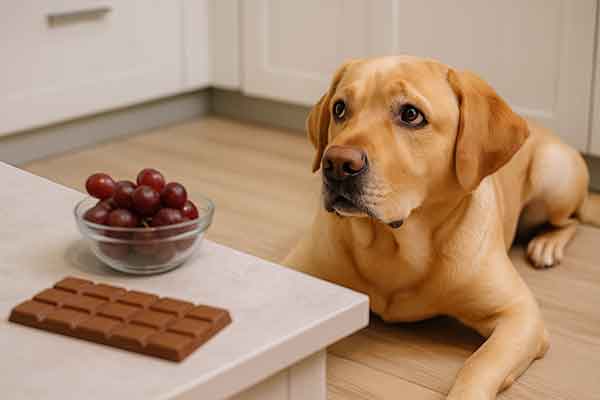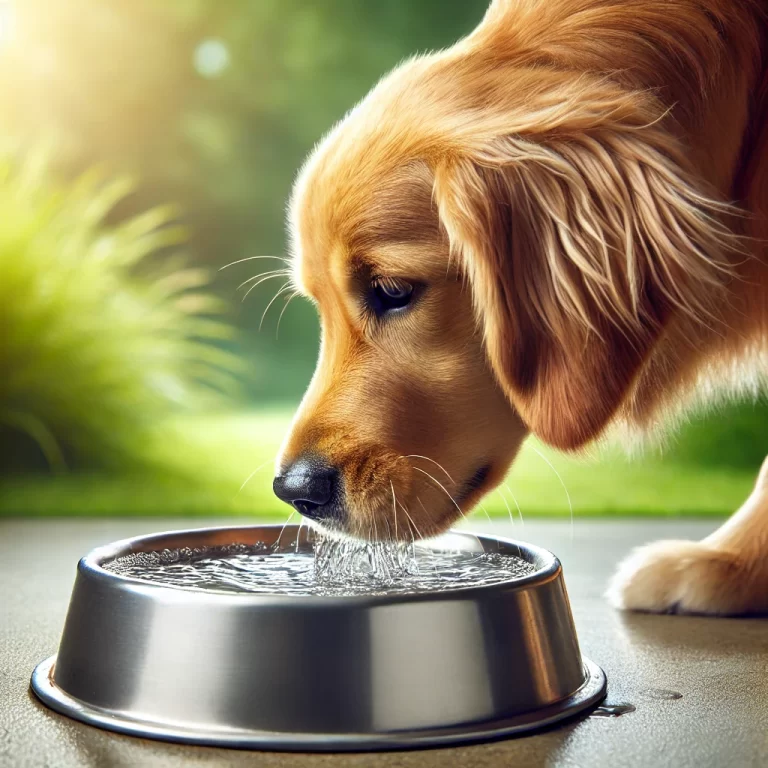What Foods Should Dogs Not Eat? 20 Dangerous Items to Avoid
As loving dog owners, we often want to share our favorite snacks with our furry friends. But not all human foods are safe for dogs. In fact, some can cause serious health problems—even in small amounts. So, what foods should dogs not eat? This article covers the most common toxic and harmful foods for dogs, explains the risks, and provides safer alternatives to keep your pup happy and healthy.
Table of Contents
- Why Certain Human Foods Are Dangerous to Dogs
- List of Toxic Foods Dogs Should Never Eat
- Explaining the Dangers: Top Offenders
- Foods That May Cause Digestive Upset
- Safe Alternatives to Share with Your Dog
- What to Do If Your Dog Eats Something Toxic
- FAQ
- Conclusion
Why Certain Human Foods Are Dangerous to Dogs
Dogs have different metabolisms and digestive systems than humans. What might be harmless or even healthy for us can be toxic for them. Some foods affect a dog’s organs, blood sugar, or nervous system, and in extreme cases, can lead to fatal outcomes. Knowing which foods dogs should not eat is an essential part of responsible pet ownership.
List of Toxic Foods Dogs Should Never Eat
Here is a quick-reference list of foods that are known to be toxic or highly dangerous for dogs:
- Chocolate (especially dark chocolate)
- Grapes and raisins
- Onions, garlic, leeks, and chives
- Macadamia nuts
- Avocados
- Alcohol
- Xylitol (found in sugar-free gum, candy, and baked goods)
- Caffeinated beverages (coffee, tea, energy drinks)
- Raw yeast dough
- Cooked bones
Explaining the Dangers: Top Offenders
🍫 Chocolate
Chocolate contains theobromine, which dogs cannot metabolize efficiently. Even a small amount can cause vomiting, diarrhea, tremors, or seizures.
🍇 Grapes & Raisins
These can lead to sudden kidney failure in dogs. Some dogs may tolerate them, but others react severely—even from a few grapes.
🧄 Onions & Garlic
These contain compounds that can damage your dog’s red blood cells, potentially leading to anemia. Raw, cooked, or powdered—all are dangerous.
🧁 Xylitol
This artificial sweetener causes a rapid insulin release in dogs, leading to hypoglycemia (low blood sugar). It can result in liver failure and death if not treated quickly.
🥑 Avocados
Avocados contain persin, a toxin that can cause vomiting and diarrhea in dogs. The pit also poses a choking hazard.
🍺 Alcohol & Raw Dough
Even small amounts of alcohol can depress a dog’s central nervous system. Unbaked dough with yeast expands in the stomach and produces ethanol—a double threat.

Foods That May Cause Digestive Upset
Not all “bad” foods are toxic—some are simply hard to digest or may trigger allergies. While not life-threatening, these should still be avoided or limited:
- Milk and dairy (many dogs are lactose intolerant)
- Spicy or heavily seasoned food
- Fat trimmings (can cause pancreatitis)
- Salt-heavy snacks like chips or pretzels
- Raw meat, eggs, or fish (risk of bacteria or parasites)
Safe Alternatives to Share with Your Dog
Here are some safe human foods for dogs that can be offered in moderation:
- Carrots 🥕 – low-calorie and great for teeth
- Blueberries 🫐 – packed with antioxidants
- Apples 🍎 – avoid seeds and core
- Peanut butter 🥜 – no xylitol, given sparingly
- Plain cooked chicken or turkey 🍗
- Brown rice or oatmeal
- Green beans, cucumbers, pumpkin
Always introduce new foods slowly, and observe your dog for any signs of intolerance or allergies.
What to Do If Your Dog Eats Something Toxic
If you suspect your dog has eaten a harmful food:
- Stay calm and act quickly.
- Call your vet or an emergency animal poison hotline (such as ASPCA or Pet Poison Helpline).
- Note the food, quantity, and time of ingestion.
- Do not induce vomiting unless instructed by a professional.
Prompt treatment can make all the difference when it comes to food poisoning in dogs.
FAQ
Can dogs eat chocolate in small amounts?
No. Even small amounts of chocolate, especially dark chocolate, can be toxic. Always keep it out of reach.
Are bananas safe for dogs?
Yes, bananas are safe in moderation and make a good low-calorie treat.
Can dogs eat peanut butter?
Yes, as long as it does not contain xylitol. Choose plain, unsweetened peanut butter and feed it occasionally.
What human food is most toxic to dogs?
Xylitol, chocolate, grapes/raisins, and onions/garlic are among the most toxic foods for dogs.
Are bones safe for dogs?
Raw bones may be safer than cooked ones, which can splinter and cause injury. Always supervise and consult your vet first.
Conclusion
Knowing what foods dogs should not eat is one of the most important aspects of being a responsible dog parent. From toxic items like chocolate and grapes to hard-to-digest foods like dairy or fatty leftovers, being cautious about what you share from your plate can protect your dog’s health—and even save their life. When in doubt, stick to dog-safe fruits, veggies, and treats made specifically for canines. Your dog’s safety and well-being starts with what’s in their bowl.

